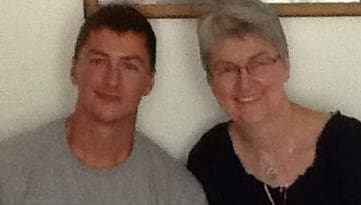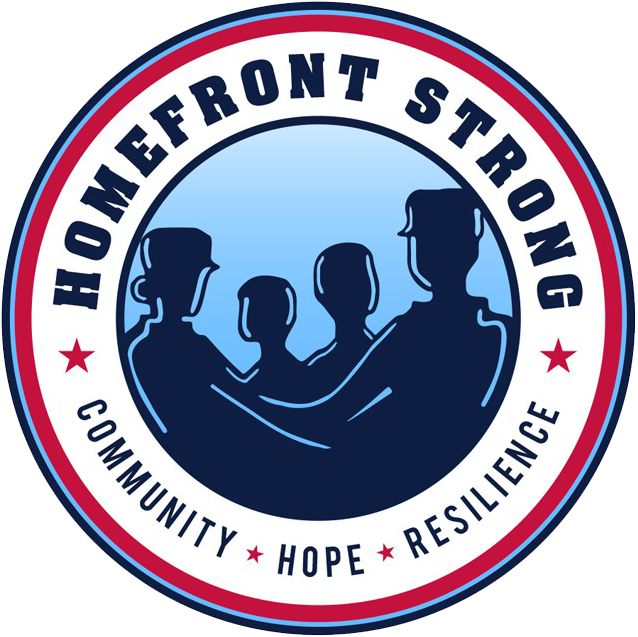
WARE — After the death of their son, Patty and Paul Boynton found a group of people to help them through the days. The Boyntons were instrumental in creating the Military Bereavement Support Group, which meets monthly in Ware.
“Our son, SFC Christopher Boynton suffered the hidden wounds of war,” says Patty Boynton. “He was deployed two times to Iraq and once to Afghanistan and died by suicide on Oct. 28, 2015 after serving with distinction in the US Army for 13 years. The support group was a way for us to reach out to others suffering the same loss and to remember Christopher and keep his memory alive.
“The support group offers a safe space to take the mask off my grief and let it flow freely without fear of judgment, condemnation or blame,” said Patty Boynton. “Those aspects of grief are anger, regrets and self-reproach as well as deep sadness. Because of this safety there is also room for humor and laughter. Talking goes beyond normal conversation to a meaningful and mutual sharing with others. It has become for me a place to heal. I have felt normalized, validated and supported by others who have had similar experiences of loss.”
The Military Bereavement Support Group, organized by The Brookfield Institute, helps people who have lost a loved one who served in the military. The group meets on the first Sunday of the month at 2 p.m. in the 2nd Floor Conference Room for the Quaboag Valley CDC, 23 W. Main St., Ware. The Rev. Dr. Crosson-Harrington, a UCC minister and psychiatric social worker, facilitates along with the Rev. Dr. Beverly Prestwood-Taylor, executive director of The Brookfield Institute, an ordained pastor who is certified in Community Education in Trauma Healing.
Most members — including the Boyntons and Crosson-Harrington — are grieving loved ones who died by suicide.
Crosson-Harrington’s son, Jamie Tower, was 22 when he died and still technically a member of the military, on reserve status, awaiting deployment.
“One of the gifts a Gold Star Mother gave me was telling me that my son was just as much a death-by-combat,” Crosson-Harrington said. She has no doubt that he died from the wounds of war, even though he was home in Massachusetts when he died.
It’s not only heartbreaking, but tricky handling the grief that comes from a military suicide, she said. “When you lose a person who was in the military … if a person who died in combat it was ‘for the cause,’ but not everyone realizes that if you end up taking your own life it’s the result of wounds you received from serving in the military.”
And it’s not talked about nearly enough — and that’s where the support group comes in.
Military suicides are “a group that’s not really addressed that much,” Crosson-Harrington said. “It’s a group that a lot of people don’t want to talk about. Either you’re a hero because you died in combat, or you’re not.
“The people left behind often feel guilty.”
Grief comes in many colors, but mourning a loved one who served in the military is also multilayered — and complicated, said Prestwood-Taylor. “Almost every family member has what we would call ‘complicated grief.’ There’s no normal cycle of healing, the grief lasts longer and there are facets of shame and blame that are deeper than some other kinds of losses.”
The group talks about a wide range of topics, including:
-
Positive aspects of the loved one’s life and what we’ve learned from loved ones
-
The cycle of healing from traumatic grief; where people get stuck, and how to get unstuck
-
Coping with the guilt frequently felt by the ones left behind and coping with well-meant, but hurtful comments people make
-
The pressure from others to “move on” when you are still in deep grief
-
The impact on one’s spiritual life and what spiritual resources help
“This group is unique,” said Crosson-Harrington. “There’s not every place you can talk freely about and get support for military-prompted suicide. People don’t want to talk about it, but this is a safe place where you can talk about all your feelings — your grief, your hope, your anger, your sadness — because everyone has had a similar experience.”
For more information, email the Rev. Dr. Beverly Prestwood-Taylor, [email protected], or call 413-563-7282.
